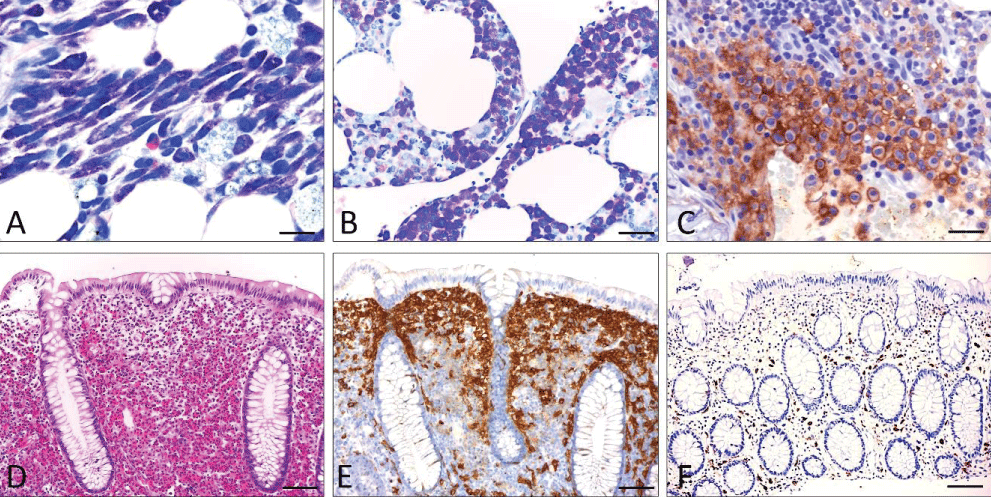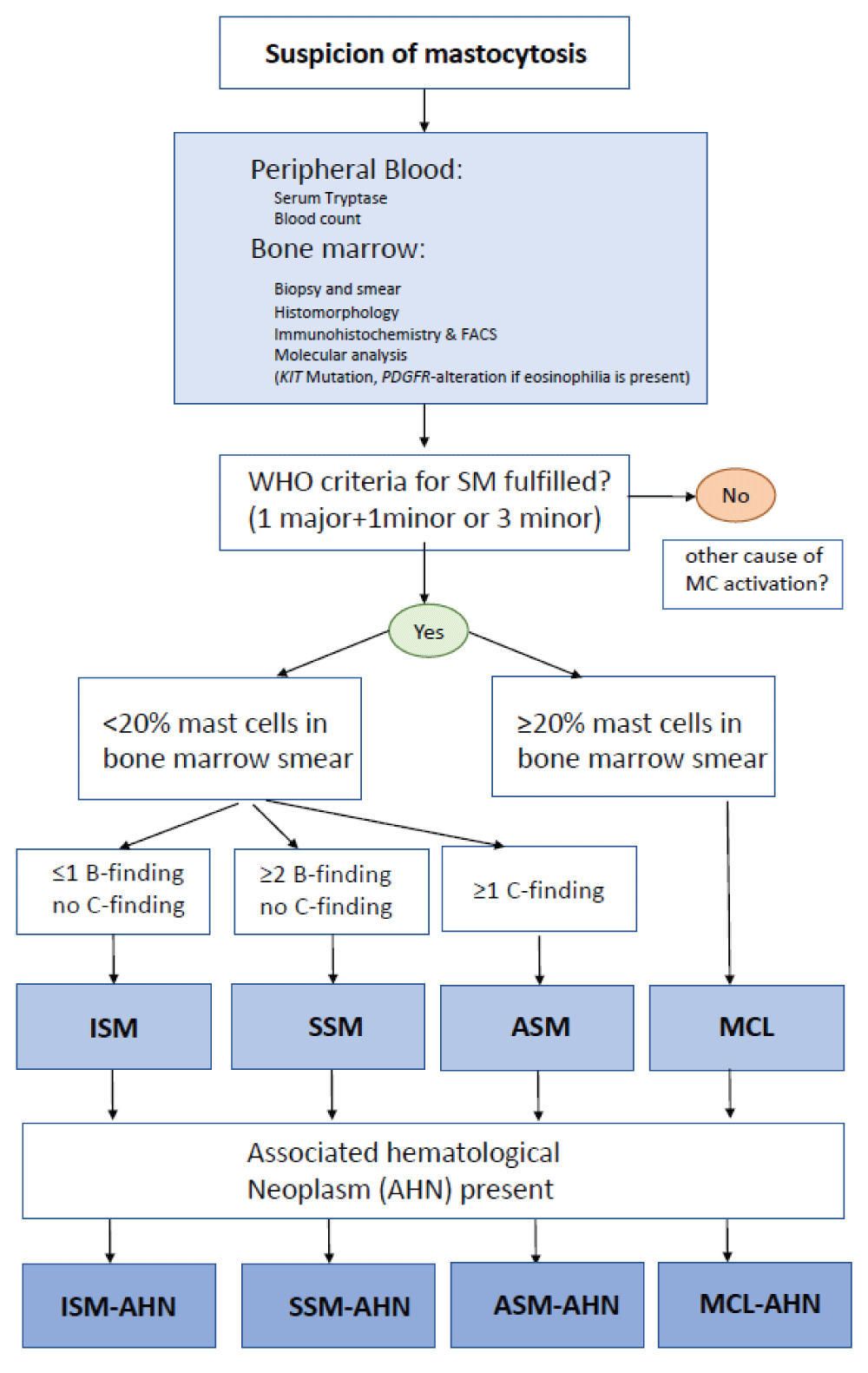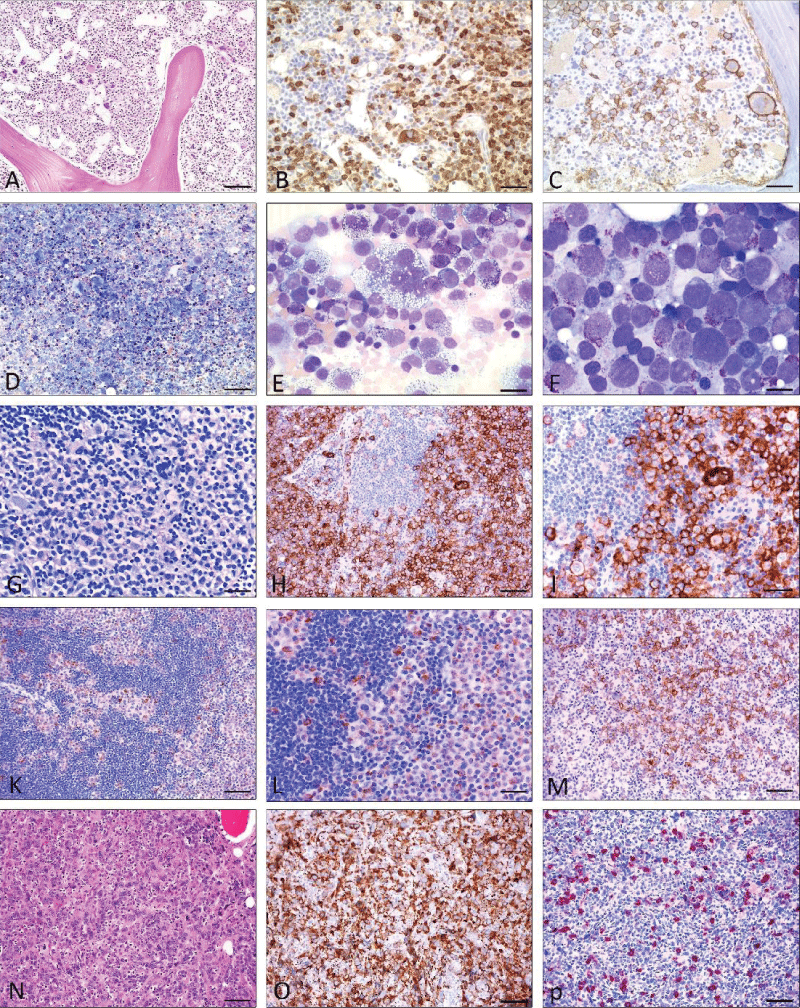要約
Mastocytosis, a hematological neoplasm, manifests with diverse clinical, molecular, and histomorphological features. This review explores the different subtypes of mastocytosis, focusing on the role of molecular pathology and histomorphology in diagnosing systemic mastocytosis (SM). Systemic mastocytosis is characterized by histologically confirmed extracutaneous involvement, presenting a diagnostic challenge due to its rarity and diverse subtypes, ranging from occult SM to mast cell leukemia. The complexity of accurate SM diagnosis underscores the necessity for a comprehensive understanding of the disease spectrum. Mastocytosis emerges as a rare, multifaceted disease, predominantly affecting children in the cutaneous form and adults in the systemic variant. The review advocates a multidisciplinary diagnostic approach involving experienced hematopathologists and haematooncologists, employing conventional histomorphology, immunohistochemistry, and molecular techniques. This holistic approach is crucial for accurate diagnosis, especially in light of recent therapeutic advances, particularly the growing importance of tyrosine kinase inhibitors (TKI) in the management of mastocytosis.









